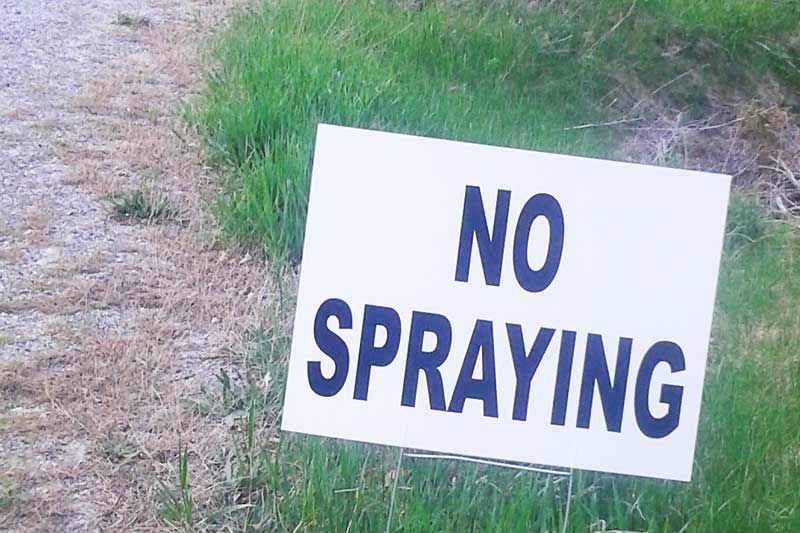Jeff Green | May 25, 2016
A number of Tay Valley residents are upset about a Lanark County-sponsored program to spray the herbicide Clearview on road allowances adjacent to county roads in order to remove infestations of wild parsnip.
Tay Valley Council has not approved the use of the spray on township roads, but county-owned Althorpe Road, Road 36 between Althorpe and Hwy. 7, and Bennett Lake Road are all scheduled for spraying in June. According to a plan that was approved by Lanark County Council earlier this year, spraying will take place on roads that are designated as having high concentrations of wild parsnip.
Direct exposure to wild parsnip has been associated with severe, dangerous levels of skin irritation that can be more serious than exposure to poison ivy in some cases.
Opponents to spraying are concerned that the application of Clearview on roadside ditches will have adverse consequences that far outweigh the risk of exposure to wild parsnip.
Sandy Parks, who lives on a farm on Road 36 where they keep bees and produce honey, takes issue with claims by Lanark County staff that Clearview can be used on sloped road allowances without causing any damage to vegetation beyond the county property.
“In the research that I and others have done, Clearview should only be used on flat stretches of ground, not ditches, which is what we have here,” she said.
In a media release on April 6, Lanark County described wild parsnip as not only a threat to exposed skin, but also a threat to bio-diversity. It “out-competes native vegetation and crowds out important, low-growing plants. Pollinators might not visit as often as other native species. It can reduce the quality of some agricultural forage crops.”
After describing how mowing programs have not been effective in reducing the spread of the parsnip, the release refers to Chad Horton of the non-profit Ontario Vegetation Management Association who said that Clearview is highly effective and is approved for use in Ontario by Health Canada.
Sandy Parks said that she is also concerned about bio-diversity, and that is why she opposes the use of Clearview, which is a generalised herbicide.
She pointed out that when the Township of Mississippi Mills, which is part of Lanark County, researched Clearview, they decided not to participate in the county program.
“Spraying roadsides with Clearview will damage non-target plants, including native plants and possibly some agricultural plants, shrubs and trees on and near roadsides), and contaminate the environment with persistent herbicide residues. Much of this damage cannot be mitigated. There are potential short- and long-term human health risks attached to the use of any pesticide, even those registered and approved by Health Canada, and many residents in the community do not want to assume this risk,” said a Mississippi Mills staff report on Clearview.
Residents of Lanark County who live on county roads can stop the spraying of Clearview in the vicinity of their property, but to do so they must contact the township office immediately and arrange to pick up a “No Spraying” sign.
Sandy Parks contacted the county for a No Spray sign, and she said she was told she needs numerous signs for the farm and the residence, and for each piece of property owned by members of the extended Parks family, who have farmed in the region for several generations.
“It hasn't been easy dealing with Lanark County on this issue,” she said.
Lanark County residents who would like more information can contact the public works office at 1-888-952-6275.
More Stories
- No Winner Yet in Catch The Ace But Fundraising Target Met
- South Frontenac Food Bank Opens Second Location in Battersea
- Sharbot Lake Pentecostal Church Anniversary - 1925-2025
- Frontenac Holistic Health Fair - September 20 At Storrington Centre
- Odd Year For Real Estate - But Sales Are Steady Year Over Year
- 193rd Kingston Fall Fair
- Kim Phuc - the Napalm Girl - To Visit Flinton In November
- South Frontenac Council - September 2
- Sticker Shock - EV Charging Station To Cost North Frontenac Township
- 30th Anniversary Verona Car Show

